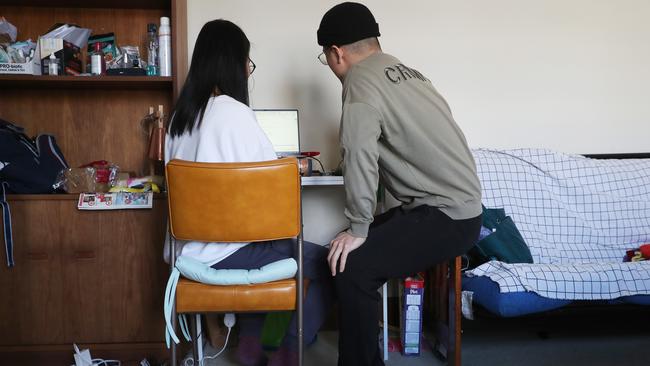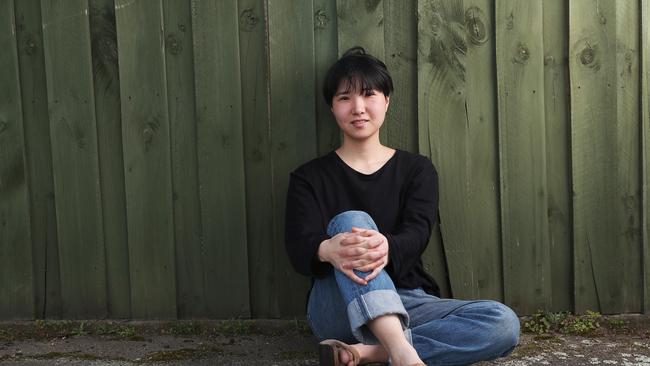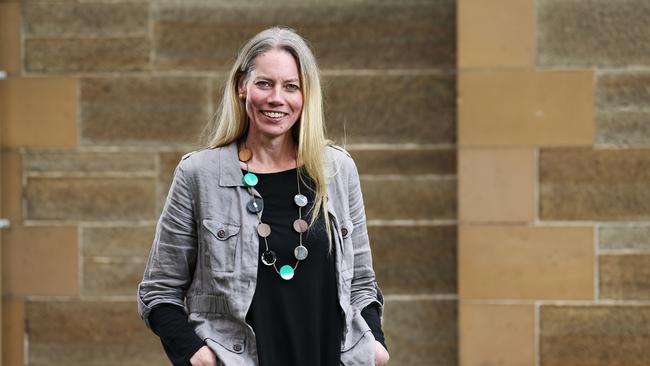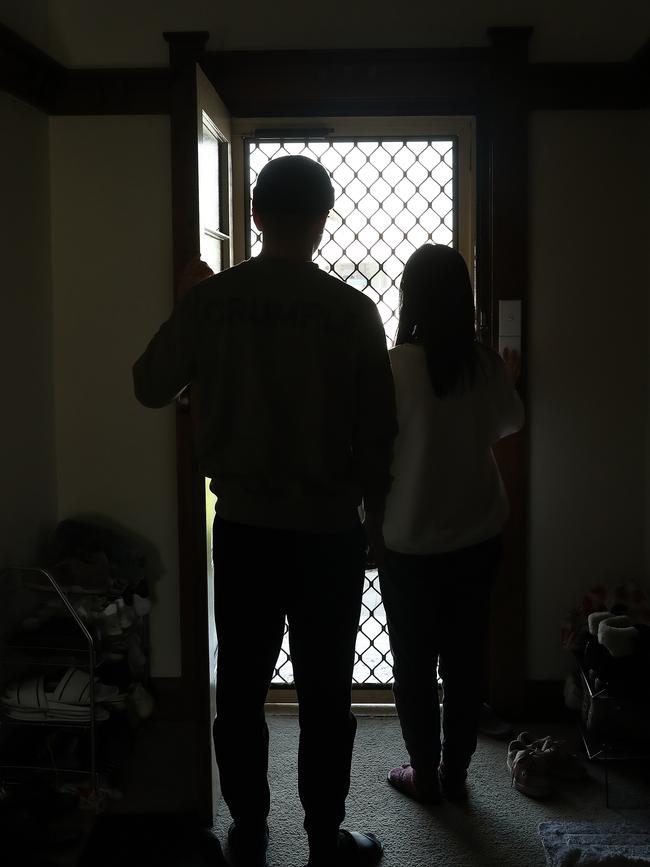New report finds coronavirus crisis has highlighted deep inequities in state’s housing market and exposed new groups to threat of homelessness
International students are putting up with overcrowding and poor living conditions because they fear being evicted — or even deported.
Tasmania
Don't miss out on the headlines from Tasmania. Followed categories will be added to My News.
THE coronavirus crisis has highlighted deep inequities in Tasmania’s housing market and exposed new groups to the very real threat of homelessness, a new report has found.
The Australian Housing and Urban Research Institute report, to be released on Monday, warns Tasmania is on the cusp of returning to pre-COVID levels of housing stress as government income protections are wound back.
The discussion paper found international students in Tasmania were facing severe housing stress as a result of COVID-19 and their ineligibility for income protection payments like JobKeeper.
It said students, who often work casually in the industries most affected by restrictions, had been pushed into “overcrowded and poor quality living environments”.
“Certain groups like migrants or international students do not have access to government income protections and have been accessing other supports like rent and food relief programs in higher numbers,” said lead author Julia Verdouw, from the University of Tasmania.
Molly Yang, a tourism student at the University of Tasmania, said her three-bedroom share house had gone from three people to six so that she and her housemates could pay the $500-a-week rent.
They were reluctant to seek state government rent relief, which is proving a lifesaver for some, for fear it would impede their ability to apply for residency permits down the track.
“It could be used as evidence that we are unable to support ourselves in Australia,” Ms Yang said.

Solicitor Benedict Bartl from the Tenants’ Union of Tasmania said governments needed to publicly reassure all temporary visa holders that their permanent visa or citizenship applications would not be jeopardised as a result of asking for financial assistance through the rent relief fund.
“We are very concerned that some real estate agents and landlords have threatened tenants with deportation or the risk of a failed residency permit as a result of them having lost their job due to COVID-19 and being unable to pay the rent,” Mr Bartl said.
Ms Yang’s housemate Brian Yan recently moved out of a severely overcrowded share house in Sandy Bay, which at one point was sleeping 13 people who had to share one bathroom, two toilets and one kitchen.
“I was paying $120 to sleep in the living room, which I shared with my flatmate,” Mr Yan said.
“There wasn’t a proper door between the living room and kitchen, so if anyone cooks we can hear and smell everything. We know exactly what they are cooking.”
He felt students were discriminated against by real estate agents.
“If I had a family or I was a local citizen it would be easier to find a good place,” he said.
Korean student Alex Kye, who is studying commercial cookery at Frontier Education on Collins St, recently moved into a backpackers in Hobart as it was cheaper – and nicer – than her previous share house in Sandy Bay.
“Before I moved to Hobart I thought it was would be cheaper, but it’s more expensive than other cities,” Ms Kye said.

Dr Verdouw said JobKeeper and JobSeeker had increased housing stability in the short-term for some groups including social housing applicants and people who are homeless, as indicated by Housing Minister Roger Jaensch last month.
As of June 2020, 3373 Tasmanians were on the wait list for government housing, down from 3578 in March and the state government said it was “providing unprecedented investment towards affordable housing”.
Dr Verdouw said Airbnb-style short-stay accommodation properties entering the long-term rental market due to Tasmania’s closed border also likely contributed to a slight temporary easing of pressures.
However, she said new vulnerabilities were emerging among groups, including young people, women, people with disability and older people with health problems.
“So far, because of the severe unaffordability of housing — particularly in Hobart — before the pandemic, pressures in the housing market have not reduced enough to increase housing affordability and access for those most vulnerable to housing stress and risk,” Dr Verdouw said.
“There is concern that as income protections are wound back, these groups will experience deeper housing insecurity and housing risk.”
Consistent with expectations that family violence would worsen during COVID-19, 20 households were assisted through the Rapid Rehousing family violence program from March to June 2020, up from 10 in the same period last year.
“This is a positive trend because more households were able to be assisted due to increased supply of properties,” a spokesman for the department of communities said.
Although rents in Hobart fell during the coronavirus lockdown, they remain at unaffordable levels, particularly for those on JobSeeker, which was reduced at the end of last month.
Modelling by the Tenants’ Union showed median rents in all parts of Tasmania were unaffordable for someone on the reduced JobSeeker payment of $800 a fortnight, which came into effect at the end of last month.
To live in a unit in Hobart, a JobSeeker recipient would need to spend 69 per cent of their income on rent, and for a house, the proportion increased to 91 per cent, the AHURI report stated.
The most affordable rental in the state as of August 2020 was in the West Coast town of Zeehan, where a median priced unit would take up 35 per cent of income.
“In all cases, the proportion of income required would still exceed the accepted housing stress benchmark of 30 per cent,” the report stated.
“It is so important that when income protections are slowly withdrawn, as is now beginning to happen, policies should be accompanied by well-designed stimulus and other models to support households through the adjustment and make sure that any gains made in housing stability during this time are not lost,” Dr Verdouw said.

Hobart woman Linda Cantwell said that, as a renter, she felt trapped in a cycle of insecurity, having moved nine times in the past decade, often due to landlords selling and other factors out of her control.
Although her rent was raised by $15 a week when her lease was renewed in August, she was reluctant to move because of the lack of secure rentals, particularly as landlords started putting properties back on Airbnb.
“Why can’t we have a two, three or even five year lease? There are other parts of the world that have ten year leases,” Ms Cantwell said.
Ms Cantwell said her career in the insurance industry had not been affected by COVID-19, but she nevertheless felt anxious about housing security, a common experience highlighted in the AHURI discussion paper.
“The way our rental laws are designed, we’re all just a couple of pay checks off being homeless,” Ms Cantwell said.
“I contribute to the economy and like everyone else I want to call the place I live my home. You can’t call it your home if you’re only there temporarily.”
Benedict Bartl from the Tenants’ Union agreed rental laws needed an overhaul.
“Many tenants are fearful of asking for repairs to be carried out for fear of being evicted. The Act needs to be amended so that tenants cannot be evicted for no reason,” Mr Bartl said.
“We also believe that the Residential Tenancy Commissioner needs to be given the power to enforce minimum standards. Currently, the Residential Tenancy Commissioner is only able to fine landlords for failing to provide a toilet, hot water or heating rather than being able to order the installation of a toilet, a heat pump or a hot water cylinder.”
The state government has extended emergency provisions including eviction protections and a rental relief fund to December 1 and landlords cannot impose rent increases until that time.
As of early September 2020, more than 700 Tasmanian residential tenants had accessed the relief fund and recipients can apply for a further payment of up to four weeks rent to a maximum of $2000, if they are still in arrears.

Back in the Hobart share house, Ms Yang said she had hoped her tourism diploma would lead to an internship and eventual employment in the Tasmanian tourism industry, but now she feared she would have to return home to China at the end of her studies this year as there were no jobs.
“In the past it was a promising industry but now suddenly the coronavirus came and we can’t do anything. One of my classmates has already gone home to Japan,” she said.
The AHURI discussion paper will be available from Monday at www.ahuri.edu.au


